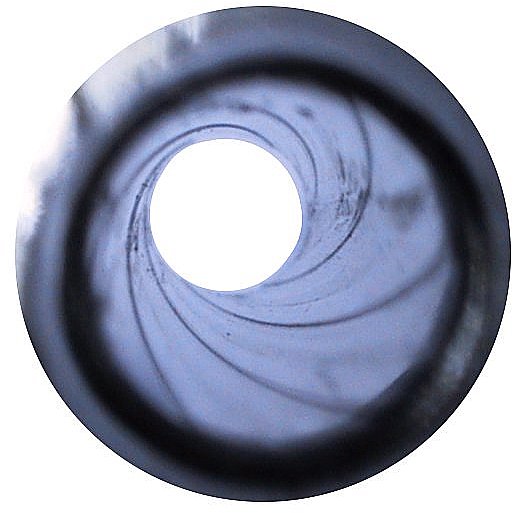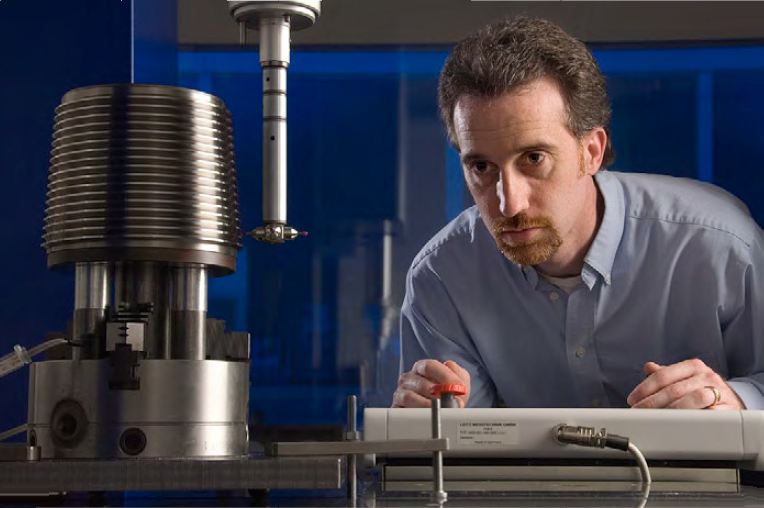|
Breech-loading Weapon
A breechloader is a firearm in which the user loads the ammunition ( cartridge or shell) via the rear (breech) end of its barrel, as opposed to a muzzleloader, which loads ammunition via the front ( muzzle). Modern firearms are generally breech-loading – except for replicas of vintage weapons. Early firearms before the mid-19th century were almost entirely muzzle-loading. Mortars and the Russian GP-25 grenade launcher are the only muzzleloaders remaining in frequent modern usage. However, referring to a weapon specifically as breech loading is mostly limited to single-shot or otherwise non-repeating firearms, such as double-barreled shotguns. Breech-loading provides the advantage of reduced reloading time, because it is far quicker to load the projectile and propellant into the chamber of a gun/cannon than to reach all the way over to the front end to load ammunition and then push them back down a long tube – especially when the projectile fits tightly ... [...More Info...] [...Related Items...] OR: [Wikipedia] [Google] [Baidu] |
Breech 122m10 Hameenlinna 2
Breech may refer to: * Breech (firearms), the opening at the rear of a gun barrel where the cartridge is inserted in a breech-loading weapon * breech, the lower part of a pulley block * breech, the penetration of a boiler where exhaust gases leave it * breech birth, when the baby is born feet or bottom first * breeches, an item of clothing covering the body from the waist down * buttocks, or breech, the lower part of the human abdomen People with the surname * Ernest R. Breech (1897–1978), American businessman, chairman of Ford Motor Company * Jim Breech James Thomas Breech (born April 11, 1956) is a former American football placekicker in the National Football League (NFL), who played for Oakland Raiders in 1979 and Cincinnati Bengals from 1980- 1992. Before his NFL career, Breech played ... (born 1956), American football player See also * * Breach (other) * Breeching (other) {{disambiguation, surname ... [...More Info...] [...Related Items...] OR: [Wikipedia] [Google] [Baidu] |
Rifling
In firearms, rifling is machining helical grooves into the internal (bore) surface of a gun's barrel for the purpose of exerting torque and thus imparting a spin to a projectile around its longitudinal axis during shooting to stabilize the projectile longitudinally by conservation of angular momentum, improving its aerodynamic stability and accuracy over smoothbore designs. Rifling is characterized by its twist rate, which indicates the distance the rifling takes to complete one full revolution, such as "1 turn in 10 inches" (1:10 inches), "1 turn in 254 mm" ("1:254 mm" or "1:25.4 cm)", or the like. Normally, an experienced shooter can infer the units of measurement from the numbers alone. A shorter distance indicates a faster twist, meaning that for a given velocity the projectile will rotate at a higher spin rate. The combination of length, weight, and shape of a projectile determines the twist rate needed to gyroscopically stabilize it &ndash ... [...More Info...] [...Related Items...] OR: [Wikipedia] [Google] [Baidu] |
Interrupted Screw
Breech from Russian 122 mm M1910 howitzer, modified and combined with 105 mm H37 howitzer barrel An interrupted screw or interrupted thread is a mechanical device typically used in the breech of artillery guns. It is believed to have been invented in 1845. The system has also been used to close other applications, including the joint between helmet (bonnet) and breastplate (corselet) of standard diving suit helmets, and the locks of diving chambers. Design An interrupted screw has a section of thread along its axis removed. The screw is mated with a partially threaded hole in the receptacle: threadless channels in the breechblock screw line up with the threaded parts of the screw, and vice versa. The screw can thus be smoothly inserted all the way into the receptacle, after which as little as one-eighth of a turn can engage the two sets of threads securely, sealing the joint. The amount of rotation required to achieve full closure depends on the number of unthre ... [...More Info...] [...Related Items...] OR: [Wikipedia] [Google] [Baidu] |
Cartridge (firearms)
A cartridge or a round is a type of pre-assembled firearm ammunition packaging a projectile (bullet, shot, or slug), a propellant substance (usually either smokeless powder or black powder) and an ignition device (primer) within a metallic, paper, or plastic case that is precisely made to fit within the barrel chamber of a breechloading gun, for the practical purpose of convenient transportation and handling during shooting. Although in popular usage the term "bullet" is often informally used to refer to a complete cartridge, it is correctly used only to refer to the projectile. Cartridges can be categorized by the type of their primers – a small charge of an impact- or electric-sensitive chemical mixture that is located: at the center of the case head ( centerfire); inside the rim ( rimfire); inside the walls on the fold of the case base that is shaped like a cup (cupfire, now obsolete); in a sideways projection that is shaped like a pin ( pinfire, now obsolete); ... [...More Info...] [...Related Items...] OR: [Wikipedia] [Google] [Baidu] |
Dreyse Needle Gun
Dreyse may refer to: * Johann Nicolaus von Dreyse (1787–1867), German firearms inventor * Hitch Dreyse, a fictional character in '' Attack on Titan'' (''Shingeki no Kyojin'') series who serves in the military police Military police (MP) are law enforcement agencies connected with, or part of, the military of a state. In wartime operations, the military police may support the main fighting force with force protection, convoy security, Screening (tactical), .... * Dreyse needle gun, a German service rifle 1841-1873 * Dreyse M1907, a German semi-automatic pistol 1907-1945 * Waffenfabrik von Dreyse, a firearms manufacturing company taken over in 1901 by Rheinische Metallwaaren- und Maschinenfabrik Sömmerda; later, Rheinmetall {{disambig, surname Surnames of German origin ... [...More Info...] [...Related Items...] OR: [Wikipedia] [Google] [Baidu] |
Machining
Machining is a process in which a material (often metal) is cut to a desired final shape and size by a controlled material-removal process. The processes that have this common theme are collectively called subtractive manufacturing, which utilizes machine tools, in contrast to '' additive manufacturing'' (3D printing), which uses controlled addition of material. Machining is a part of the manufacture of many metal products, but it can also be used on other materials such as wood Wood is a porous and fibrous structural tissue found in the stems and roots of trees and other woody plants. It is an organic materiala natural composite of cellulose fibers that are strong in tension and embedded in a matrix of ligni ..., plastic, ceramic, and composite material. A person who specializes in machining is called a machinist. A room, building, or company where machining is done is called a machine shop. Much of modern-day machining is carried out by Numerical control, computer ... [...More Info...] [...Related Items...] OR: [Wikipedia] [Google] [Baidu] |
Precision Engineering
Precision engineering is a subdiscipline of electrical engineering, software engineering, electronics engineering, mechanical engineering, and optical engineering concerned with designing machines, fixtures, and other structures that have exceptionally low tolerances, are repeatable, and are stable over time. These approaches have applications in machine tool A machine tool is a machine for handling or machining metal or other rigid materials, usually by cutting, boring, grinding, shearing, or other forms of deformations. Machine tools employ some sort of tool that does the cutting or shaping. All ...s, MEMS, NEMS, optoelectronics design, and many other fields. Overview Professors Hiromu Nakazawa and Pat McKeown provide the following list of goals for precision engineering: # Create a highly precise movement. # Reduce the dispersion of the product's or part's function. # Eliminate fitting and promote assembly, especially automatic assembly. # Reduce the initial co ... [...More Info...] [...Related Items...] OR: [Wikipedia] [Google] [Baidu] |
Duchy Of Burgundy
The Duchy of Burgundy (; la, Ducatus Burgundiae; french: Duché de Bourgogne, ) emerged in the 9th century as one of the successors of the ancient Kingdom of the Burgundians, which after its conquest in 532 had formed a constituent part of the Frankish Empire. Upon the 9th-century partitions, the French remnants of the Burgundian kingdom were reduced to a ducal rank by King Robert II of France in 1004. Robert II's son and heir, King Henry I of France, inherited the duchy but ceded it to his younger brother Robert in 1032. Other portions had passed to the Imperial Kingdom of Burgundy-Arles, including the County of Burgundy (Franche-Comté). Robert became the ancestor of the ducal House of Burgundy, a cadet branch of the royal Capet dynasty, ruling over a territory that roughly conformed to the borders and territories of the modern region of Burgundy (Bourgogne). Upon the extinction of the Burgundian male line with the death of Duke Philip I in 1361, the duchy reverted ... [...More Info...] [...Related Items...] OR: [Wikipedia] [Google] [Baidu] |
Early Breech Loaders
Early may refer to: History * The beginning or oldest part of a defined historical period, as opposed to middle or late periods, e.g.: ** Early Christianity Early Christianity (up to the First Council of Nicaea in 325) spread from the Levant, across the Roman Empire, and beyond. Originally, this progression was closely connected to already established Jewish centers in the Holy Land and the Je ... ** Early modern Europe Places in the United States * Early, Iowa * Early, Texas * Early Branch, a stream in Missouri * Early County, Georgia Other uses * ''Early'' (Scritti Politti album), 2005 * ''Early'' (A Certain Ratio album), 2002 * Early (name) * Early effect, an effect in transistor physics * Early Records, a record label * the early part of the morning See also * Earley (other) {{disambiguation, geo ... [...More Info...] [...Related Items...] OR: [Wikipedia] [Google] [Baidu] |
Three Shot Breach Loading Cannon Henry VIII 1540 1543
3 is a number, numeral, and glyph. 3, three, or III may also refer to: * AD 3, the third year of the AD era * 3 BC, the third year before the AD era * March, the third month Books * '' Three of Them'' (Russian: ', literally, "three"), a 1901 novel by Maksim Gorky * ''Three'', a 1946 novel by William Sansom * ''Three'', a 1970 novel by Sylvia Ashton-Warner * ''Three'' (novel), a 2003 suspense novel by Ted Dekker * ''Three'' (comics), a graphic novel by Kieron Gillen. * ''3'', a 2004 novel by Julie Hilden * ''Three'', a collection of three plays by Lillian Hellman * ''Three By Flannery O'Connor'', collection Flannery O'Connor bibliography Brands * 3 (telecommunications), a global telecommunications brand ** 3Arena, indoor amphitheatre in Ireland operating with the "3" brand ** 3 Hong Kong, telecommunications company operating in Hong Kong ** Three Australia, Australian telecommunications company ** Three Ireland, Irish telecommunications company ** Three UK, Bri ... [...More Info...] [...Related Items...] OR: [Wikipedia] [Google] [Baidu] |
Gun Turret
A gun turret (or simply turret) is a mounting platform from which weapons can be fired that affords protection, visibility and ability to turn and aim. A modern gun turret is generally a rotatable weapon mount that houses the crew or mechanism of a projectile-firing weapon and at the same time lets the weapon be aimed and fired in some degree of azimuth and elevation (cone of fire). Description Rotating gun turrets protect the weapon and its crew as they rotate. When this meaning of the word "turret" started being used at the beginning of the 1860s, turrets were normally cylindrical. Barbettes were an alternative to turrets; with a barbette the protection was fixed, and the weapon and crew were on a rotating platform inside the barbette. In the 1890s, armoured hoods (also known as "gun houses") were added to barbettes; these rotated with the platform (hence the term "hooded barbette"). By the early 20th Century, these hoods were known as turrets. Modern warships have gu ... [...More Info...] [...Related Items...] OR: [Wikipedia] [Google] [Baidu] |




